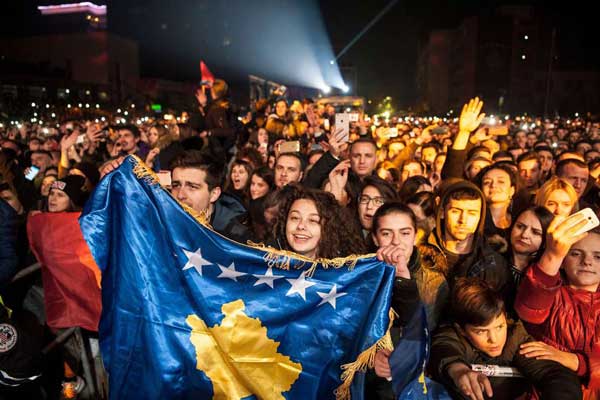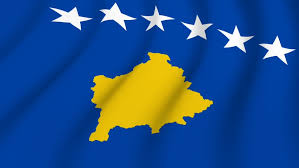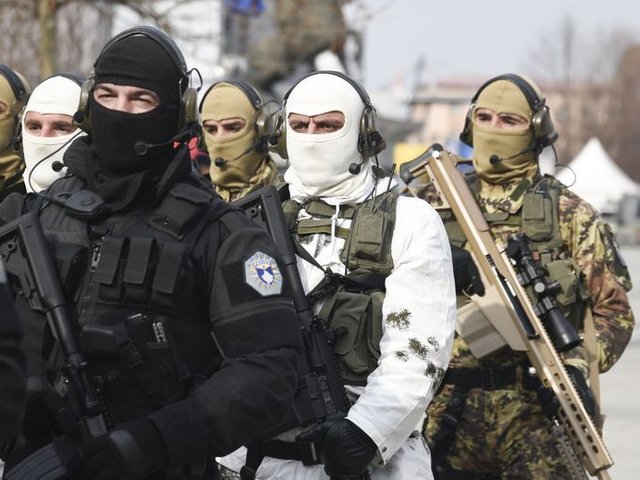Kosovo’s Independence Declaration: The Triumph and Dilemma towards Recognition
I wrote this article for almost 1 WEEK ,Hello Steemit community, here is my paper on one our our subject Contemporary Europe. This papers evaluates and supports Kosovo on their independence declaration.
 Nation.co
Nation.co
From the disintegration of the Czechoslovak to the Soviet Union and Yugoslavia illustrates how globalization has played to it and that the disintegration is one of the greatest and understood tragedies of the contemporary Europe. There can only be one certainty on its polarizing effect that either being the answer to world struggles or an agent of cultural erosion . The creation of these independent states namely Croatia, Bosnia and Herzegovina, Macedonia, Montenegro, Serbia, Slovenia and most recently Kosovo who was not an original republic but a province of Serbia led to a greater challenge not only in the Balkan region but has thoroughly caught a global attention. 
On February 17, 2008, Kosovo the last of the former Yugoslavia and considered province of Serbia made a gigantic move by declaring independence. The Kosovo assembly unanimously voted and decided to separate its way with Serbia. This declaration catches and divide the international community.
 Google
Google
Few days after its declaration the United states of America together with United kingdom, France Germany, Italy even Australia recognized Kosovo’s independence declaration. Meanwhile the neighbouring Balkan states are also divided Croatia and Macedonia are pro Kosovo, but Bosnia and Herzegovina is not. Other states, like Malta and Portugal, want Kosovo's future be decided at the UN Security Council. On the other side, Serbia who were much involved and affected with the declaration had given a strong sentiments and later called Kosovo’s declaration “Illegal and baseless” to which later supported by some big countries including China, India and Russia who stated that Kosovo for the better should stay a province of Serbia and remained with the Serbian government . The 2008 declaration of independency that elicited mixed reactions internationally and polarized one with two opposing sides has drawn the attention of the researcher to further investigate on the current status of Kosovo as well us understanding the dilemma that the state is facing. Thus the researcher answers and give reinforcement to the argument that support Kosovo’s independence declaration and right for self-sovereignty as well as on the legality of its declaration
Kosovo reached another milestone on February 17, 2018 as it celebrates 10 years since it declared independence. It was a moment for pride and joy for the ethnic Albanian majority though sovereignty remains strongly contested by Serbia and some other nations. Kosovo’s identity as a governing nation seems to remained a question. So it is important for us to undermine several factors that support the rights of the former province to declare its own sovereignty.
.jpg)
So now lets highlight the important factors why Kosovo should be independent from Serbia
.jpg)
.jpg)
- The History and the People
In understanding the events it is very essential to dig deep to its history and people. The history of Kosovo is intertwined Kosovo reached another milestone on February 17, 2018 as it celebrates 10 years since it declared independence. It was a moment for pride and joy for the ethnic Albanian majority though sovereignty remains strongly contested by Serbia and some other nations. Kosovo’s identity as a governing nation seems to remained a question. So it is important for us to undermine several factors that support the rights of the former province to declare its own sovereignty.
with the histories of its neighbouring regions. If we talk on the Prehistory, the area in and around Kosovo has been inhabited for nearly 10,000 years.Therefore, until arguments of Paleolithic and Mesolithic man are confirmed, Neolithic man, respectively the Neolithic sites are considered as the chronological beginning of population in Kosovo. From this period until today Kosovo has been inhabited. In middle ages it is very important discussed that before Kosovo was a part of the Serbian kingdom, it has also root connection and a part of the Bulgarian empire . It remained within the borders of Bulgaria for 150 years until 1018, when the country was overrun by the Byzantines after half-century bitter struggle. When Kosovo was overrun by the Byzantines, the control was subsequently reasserted by Emperor Basil II. Serbia at that time was not a united state: a number of Serbian principalities lay to the north and west of Kosovo, of which Raška and Duklja were the strongest. It was late that Kosovo was absorbed by Serbia, Kosovo was part into the Serbian state of Rascia in the late 12th and early 13th centuries, and was part of the Serbian Empire from 1346 to 1371. Another important things to note that Serbia including Kosovo was conquered by the Islamic Ottoman Turks in 1459, Bosnia and Herzegovina fell in 1465 and 1483 respectively . Most important are the people, which plays a very important role as a big support for Kosovo’s independence declaration. It is essential to elaborate the settlers and origin of the Albanian in the context of Kosovo. The researcher found out that the features similar in common are dominated by the theory of Illyrian-Albanian continuity but includes the number of units dedicated to the Illyrians. The Illyrians were presented as indisputable ancestors of the Albanians and as indigenous population within the Balkan land that has once inhabited by them across the all territory of the former Yugoslavia that the features similar in common are dominated by the theory of Illyrian-Albanian continuity but includes the number of units dedicated to the Illyrians. The Illyrians were presented as indisputable ancestors of the Albanians and as indigenous population within the Balkan land that has once inhabited by them across the all territory of the former Yugoslavia . The earliest known inhabitants of Kosovo were called Illyrians by both Greeks and Romans. Albanians today claim to be direct descendants of the Illyrians. Serbian scholars claim that Albanians appeared on the scene in the early middle Ages as a result of intermarriage between nomadic shepherds and unorganized remnants of Illyrians and Dardanians from Thrace. Slavs crossed the Danube and moved into the Balkans by the 6th century. These migrations weakened the Byzantium Empire sufficiently that Illyrian speaking people, known to their neighbors as Albanians moved eastward from the Adriatic into the Kosovo region of the Balkans ..jpg)
On the important note on this was some 90 per cent of the two million people are ethnic Albanians, just 10 percent Serbs and of these three-quarters were Muslim. . In the second half of the 20th century, as a result of Serbian out-migration and higher Albanian birth rates, there was a dramatic shift in the ethnic composition of Kosovo . So in general if we are going to analysed it is like Serbia is ruling a place or a government which are 90% of race are not their blood. The second support to look further is the events or scenarios that shape Kosovo to further separate its way to Serbia.


2.The Ethnic Cleansing
Serbia effectively lost Kosovo through its own actions in the atrocities and ethnic cleansing of the 1990s. More than 10,000 Kosovo Albanians died and up to one million were displaced during Serbia’s crackdown. NATO launched air strikes on 24 March 1999, aimed at preventing ethnic cleansing . United Nations Security Council (UNSC) Resolution 1244 ended the war and established the United Nations Interim Administrative Mission in Kosovo (UNMIK). This event just provoke the nationalistic feelings for the Kosovo Albanian majority. “Serbian forces dramatically increased the scope and pace of their efforts, moving away from the selective targeting of towns and regions suspected of KLA sympathies toward a sustained and systematic effort to ethnically cleanse the entire province of Kosovo” Nearly all the refugees are women and children . They say their menfolk are either hiding out in the hills of Kosovo, or have been captured and killed by the Serbs. The alliance believes about 50,000 Kosovars - many of them refugees from other parts of Kosovo . This event pushes Kosovo citizen to further fight for independence they wanted for a long time. Large numbers of refugees from Kosovo still live in temporary camps and shelters in Serbia proper. After the end of the Kosovo War in 1999, the United Nations Security Council adopted Resolution 1244 to provide a framework for Kosovo's interim status. It placed Kosovo under transitional UN administration
.jpg)
- Legality
As for the Serbian the Kosovo’s impendence declaration has no legal basis and considered illegal. But according to UN court rules “Kosovo's unilateral declaration of independence from Serbia in February 2008 did not violate international law”, the international court of justice (ICJ) said in a ground-breaking ruling that could have far-reaching implications for separatist movements around the world, as well as for Belgrade's stalled EU membership talks. The court delivered its advisory opinion on 22 July 2010; by a vote of 10 to 4, it declared that the adoption of the declaration of independence of the 17 February 2008 . Although for the side of the Serbian will not change its position regarding Kosovo's unilateral declaration of independence and necessity of a compromise..jpg)
The Albanian-Kosovar celebrate on the UN court rules decision.
In general, Kosovo’s independence declaration has lessen the ethnic and cultural tension within the Balkan region since then. As of February 17, 2018 the Republic of Kosovo has received 117 diplomatic recognition as an independent state. In figures, notably there are 113 out of 193 and that is 58.5 percent of United Nation member’s state . Challenges remained for Kosovo to obtain that full international recognition overtime. The Government of Serbia does not recognize it as a sovereign state, but has begun to normalize relations with the Government of Kosovo in accordance with the Brussels Agreement.
I hope you were enlighten with my seminar papers.
Thanks and credits to google for the photos used above
Sources:
Book
- Elsie, R. (2001) Gathering clouds: the roots of ethnic cleansing in Kosovo and Macedonia. Dukagjini Balkan Books
- Gashi, S. (2016) The History of Kosovo. Alter Hatsitus Press. Kosovo
- Judah, T. (2008) Kosovo What Everyone needs to Know. Madison Avenue, New York. Oxford University Press
- Latawski, P. & Smith, M. (2003) The Kosovo Crisis and the Evolution of Post-Cold War.
Manchester New York. Manchester University Press - Rosenberg M. (2010) Kosovo Independence. Cambridge University Press. Cambridge CB2 8BS, UK
Bobinac, U. (2004) The Disintegration of Yugoslavia. Retrieved fromhttps://scholarworks.bgsu.edu/cgi/viewcontent.cgi?article=1000&context=irj on March 06, 2018
Beaumont P, (2010) Kosovo Independence Declaration is Legal, UN Court rules. Retrieved from https://www.theguardian.com/world/2010/jul/22/kosovo-independence-un-ruling on March 03, 2018
Broek, M. (2010) A Struggle for Independence in Kosovo. Retrieved on February 07, 2018 from
http://theses.ubn.ru.nl/bitstream/handle/123456789/2732/2010%20Broek.pdf?sequence=1Freizer, S. (2007) Why Kosovo’s Independence is Necessary. Retrieved from https://www.crisisgroup.org/europe-central-asia/balkans/kosovo/why-kosovos-independence-necessary on March 08, 2018
Jansen, R. (2008. Albanians and Serbs in Kosovo: An Abbreviated History for an Opening of Jihad for the Islamic Europe. Retrieved from https://www.crkvenikalendar.com/history/short_history_of_kosovo.php on March 07, 2018
Judah, T. (2007) Picture Story: Tim Judah’s Kosovo. Retrieved on February 08, 2018 from http://www.esiweb.org/pdf/esi_picture_story_-tim_judah's_kosovo-_september_2007.pdf
nice article very intersting . keep writing
Thank you, i write this over a week
It takes time to write research-intensive blog posts. I also write about social and political issues including freedom struggles here in northeast India.
Awesome article you there @zam398 , i like your writing